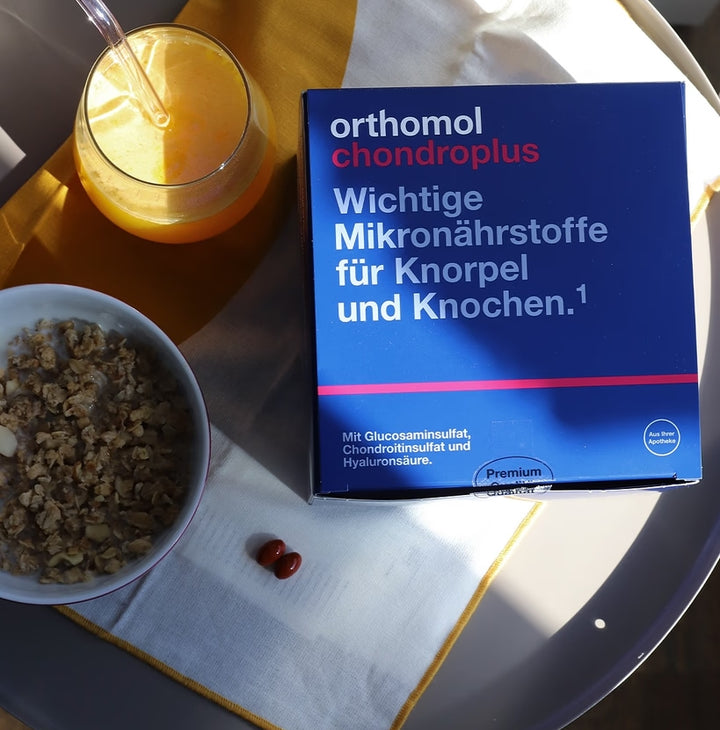
Nutrients for Mental Clarity – Supporting Brain Health with Daily Habits
In an age of constant stimulation and busy schedules, maintaining mental clarity is a daily challenge. Whether you're tackling work projects, managing family life, or simply trying to stay focused throughout the day, brain fog and lapses in concentration can be frustrating. The good news? Nutrition and daily habits play a powerful role in supporting cognitive function and long-term brain health.
This blog explores how key nutrients and wellness practices can help reduce brain fog, improve focus, and promote better cognitive performance—naturally and sustainably.
Understanding Mental Clarity and Brain Fog
"Brain fog" isn’t a clinical diagnosis, but it’s a term often used to describe symptoms such as:
- Trouble concentrating
- Mental fatigue
- Forgetfulness
- Slowed thinking
While occasional lapses are normal, chronic issues may indicate a need for lifestyle changes. Mental clarity is influenced by a variety of factors, including hydration, sleep, stress, and nutrition.
Key Nutrients That Support Brain Health
Several vitamins and minerals are essential to healthy cognitive function. Incorporating them into your daily routine can help support neurotransmitter production, energy metabolism in the brain, and protection against oxidative stress.
1. B-Vitamins (Especially B6, B12, and Folate)
- Why they matter: B-vitamins are involved in energy metabolism and the production of neurotransmitters like serotonin and dopamine. Deficiencies have been linked to mental fatigue and poor memory.
- Food sources: Leafy greens, eggs, whole grains, legumes, poultry, and fortified cereals.
2. Magnesium
- Why it matters: Magnesium supports over 300 biochemical reactions in the body, including those related to brain signaling and stress regulation.
- Food sources: Nuts (especially almonds and cashews), spinach, seeds, whole grains, and dark chocolate.
3. Omega-3 Fatty Acids (DHA and EPA)
- Why they matter: Omega-3s are structural components of brain cell membranes. DHA, in particular, supports memory and learning, while EPA has anti-inflammatory effects that may benefit mental health.
- Food sources: Fatty fish (like salmon, mackerel, and sardines), flaxseeds, chia seeds, and walnuts.
4. Iron and Iodine
- Why they matter: Iron is essential for oxygen transport in the blood, including to the brain. Iodine is important for thyroid health, which regulates many cognitive processes.
- Food sources: Lean meats, legumes, seafood, dairy, and iodized salt.
Lifestyle Tips to Support Mental Clarity
Nutrition is only one piece of the puzzle. Daily habits play a significant role in maintaining a clear, focused mind.
1. Prioritize Quality Sleep Sleep is when your brain consolidates memories, removes toxins, and resets for the next day. Adults should aim for 7–9 hours per night.
Tip: Avoid screens an hour before bed, keep your bedroom cool and dark, and try calming routines like stretching or reading to wind down.
2. Stay Hydrated Even mild dehydration can impair focus and memory. Water helps regulate brain function and maintain alertness.
Tip: Keep a water bottle at your desk, and flavor with lemon or berries if needed.
3. Practice Focus-Enhancing Techniques
- Use time-blocking or the Pomodoro method (25 minutes work / 5 minutes break)
- Keep your workspace clutter-free
- Limit multitasking, which can reduce overall productivity
4. Manage Stress Through Mindfulness Chronic stress releases cortisol, which can disrupt memory and concentration. Mindfulness practices can help lower stress levels and improve cognitive flexibility.
Tip: Try breathing exercises, guided meditation apps, or simply stepping away from your screen for a short walk.
When Supplementation May Help
Even with a well-rounded diet, some individuals may struggle to meet optimal nutrient levels—especially during times of high stress or cognitive demand. Supplements that include B-complex vitamins, magnesium, omega-3s, and antioxidants may support brain function by:
- Enhancing energy production in brain cells
- Reducing oxidative damage
- Supporting neurotransmitter balance
Before beginning any new supplement, speak with a healthcare provider—especially if you have underlying health conditions or are taking medication.
Final Thoughts: Small Changes, Sharper Focus
Mental clarity doesn’t come from one perfect habit—it’s the result of daily actions that support your brain's nutritional and functional needs. By nourishing your body with the right nutrients and adopting consistent habits around sleep, hydration, and stress management, you can build the foundation for a more focused, energized mind.
Over time, these healthy habits can lead to improved productivity, mood, and cognitive resilience—at every age.
Ready to take the next step? Explore more insights on brain health or shop our range of mental wellness supplements at Orthomol USA to support your daily cognitive performance.




